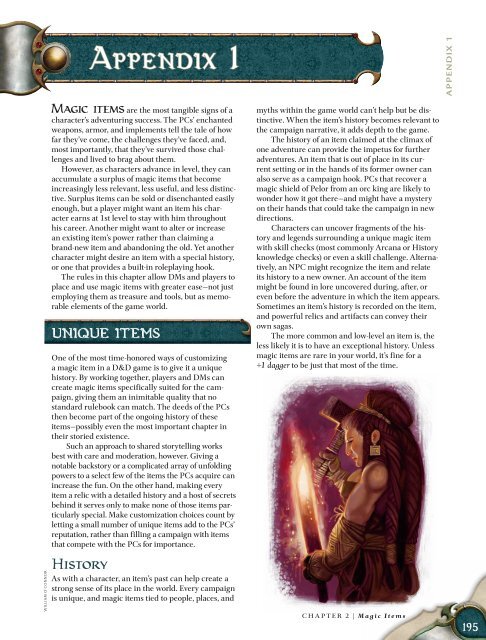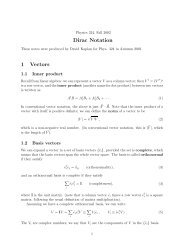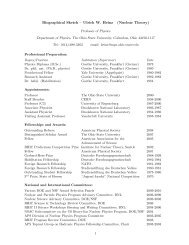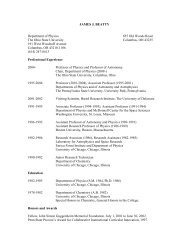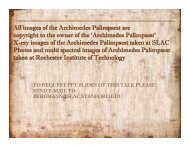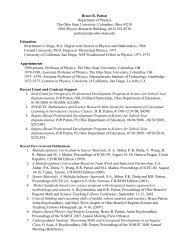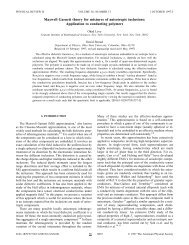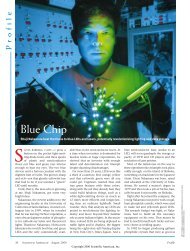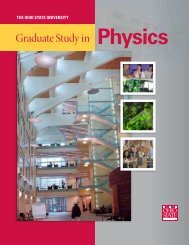You also want an ePaper? Increase the reach of your titles
YUMPU automatically turns print PDFs into web optimized ePapers that Google loves.
WILLIAM O’CONNOR<br />
Appendix 1<br />
Magic items are the most tangible signs of a<br />
character’s adventuring success. The PCs’ enchanted<br />
weapons, armor, and implements tell the tale of how<br />
far they’ve come, the challenges they’ve faced, and,<br />
most importantly, that they’ve survived those challenges<br />
and lived to brag about them.<br />
However, as characters advance in level, they can<br />
accumulate a surplus of magic items that become<br />
increasingly less relevant, less useful, and less distinctive.<br />
Surplus items can be sold or disenchanted easily<br />
enough, but a player might want an item his character<br />
earns at 1st level to stay with him throughout<br />
his career. Another might want to alter or increase<br />
an existing item’s power rather than claiming a<br />
brand-new item and abandoning the old. Yet another<br />
character might desire an item with a special history,<br />
or one that provides a built-in roleplaying hook.<br />
The rules in this chapter allow DMs and players to<br />
place and use magic items with greater ease—not just<br />
employing them as treasure and tools, but as memorable<br />
elements of the game world.<br />
UNIQUE NIQUE ITEMS<br />
ITEMS<br />
One of the most time-honored ways of customizing<br />
a magic item in a D&D game is to give it a unique<br />
history. By working together, players and DMs can<br />
create magic items specifically suited for the campaign,<br />
giving them an inimitable quality that no<br />
standard rulebook can match. The deeds of the PCs<br />
then become part of the ongoing history of these<br />
items—possibly even the most important chapter in<br />
their storied existence.<br />
Such an approach to shared storytelling works<br />
best with care and moderation, however. Giving a<br />
notable backstory or a complicated array of unfolding<br />
powers to a select few of the items the PCs acquire can<br />
increase the fun. On the other hand, making every<br />
item a relic with a detailed history and a host of secrets<br />
behind it serves only to make none of those items particularly<br />
special. Make customization choices count by<br />
letting a small number of unique items add to the PCs’<br />
reputation, rather than filling a campaign with items<br />
that compete with the PCs for importance.<br />
History<br />
As with a character, an item’s past can help create a<br />
strong sense of its place in the world. Every campaign<br />
is unique, and magic items tied to people, places, and<br />
myths within the game world can’t help but be distinctive.<br />
When the item’s history becomes relevant to<br />
the campaign narrative, it adds depth to the game.<br />
The history of an item claimed at the climax of<br />
one adventure can provide the impetus for further<br />
adventures. An item that is out of place in its current<br />
setting or in the hands of its former owner can<br />
also serve as a campaign hook. PCs that recover a<br />
magic shield of Pelor from an orc king are likely to<br />
wonder how it got there—and might have a mystery<br />
on their hands that could take the campaign in new<br />
directions.<br />
Characters can uncover fragments of the history<br />
and legends surrounding a unique magic item<br />
with skill checks (most commonly Arcana or History<br />
knowledge checks) or even a skill challenge. Alternatively,<br />
an NPC might recognize the item and relate<br />
its history to a new owner. An account of the item<br />
might be found in lore uncovered during, after, or<br />
even before the adventure in which the item appears.<br />
Sometimes an item’s history is recorded on the item,<br />
and powerful relics and artifacts can convey their<br />
own sagas.<br />
The more common and low-level an item is, the<br />
less likely it is to have an exceptional history. Unless<br />
magic items are rare in your world, it’s fine for a<br />
+1 dagger to be just that most of the time.<br />
CHAPTER 2 | Magic Items<br />
APPENDIX 1<br />
195


